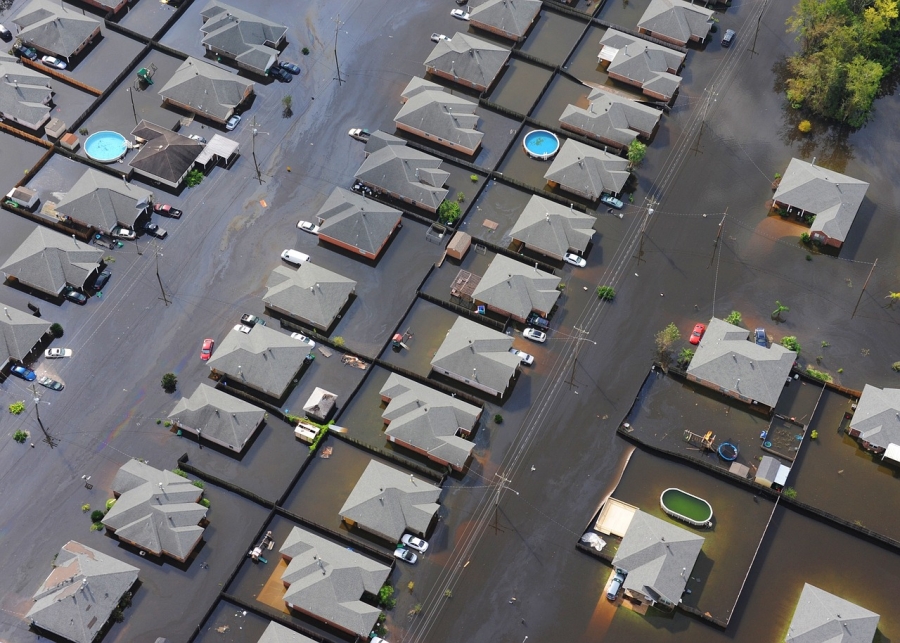Regardless of where you live, a basement flood is not something any homeowner wants to wake up to. Unfortunately, a flooded basement can happen at any time and homeowners should be prepared to respond. The first thing to do in the event of a flood is to shut off power to the basement if it is safe to do so. Never enter standing water without shutting off your electricity first or you could be electrocuted. If your circuit breaker is located in your basement do not enter your basement!
After the power has been turned off you should try to identify and stop the source of the water.
Common Causes of Basement Floods
• Broken Sump Pump: A sump pump removes water from your basement and pumps it away from your home. These are installed in situations when the water table is above the foundation of the home. If this pump fails during a big rainstorm you could find yourself with a flooded basement overnight.
• Frozen Pipes: Every winter brings cold temperatures and possibility of a frozen pipe that can burst. Burst pipes can cause a substantial amount of damage in a short amount of time. The best ways to prevent this from happening is to insulate piping under your home and to run the water regularly during extremely cold periods.
• Appliance Failure: As your appliance get older, especially today’s appliances with more complicated electronics and water connections, the risk of a failure increases. In addition, today’s modern homes have more appliances with water connections than ever before. Unfortunately, if an appliance like a water heater goes it can release a deluge of water that can soak through floors and walls in a hurry. Routine maintenance can help prevent appliance failure, but there’s no guarantee you won’t face a flood eventually.
• Poor Drainage: Clogged gutters or drain pipes that do not funnel water away from your foundation can also lead to a flooded basement. This type of flooding is easily avoided by making sure to keep your gutters clean and that your downspouts are not dumping water at the edge of your foundation.
Check Your Insurance
While your homeowners insurance policy may seem like it covers a lot, it usually does not include water damage from floods or negligence. Most policies have wording that requires the flood to be “sudden and accidental,” which includes things like burst pipes and appliance failures. Though your insurance company may try to avoid paying for an appliance failure that it believes is due to neglect. You homeowners insurance does not cover basement flooding from regional flooding, storm surge, heavy rainfall, or water seeping in from the ground. It also likely does not cover a broken sump pump unless you paid for a extra “endorsement” on your policy.
Call a Water Restoration Professional
If you have a flooded basement it’s best to call in professional help. Water restoration professionals utilize heavy duty drying equipment and have years of experience dealing with water damage repair. Time is of the essence when it comes to water mitigation in order to prevent mold and other structural damage. Water restoration companies also have experience dealing with insurance companies. This experience can come in handy you're dealing with an insurance company that doesn’t want to pay for a full and complete repair.
Most individuals simply do not have the training, experience, or equipment to properly dry out and repair a flooded basement. Unlike professionals, homeowners do not usually have the high-tech equipment, including infrared cameras, to measure moisture levels behind walls or under carpet. This causes many do-it-yourself repairs to miss these hidden areas, which can lead to more damage down the road. Hiring a reputable restoration company will provide peace of mind that you won’t have a nasty mold issue down the road.







